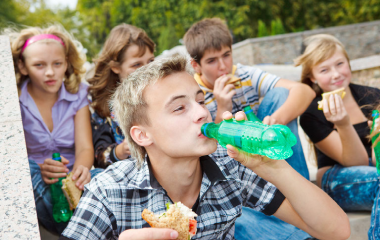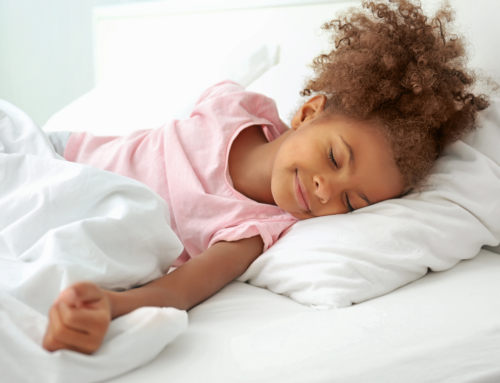Students may want to cut back on the caffeine as they go back to school. Research shows that consuming caffeine may affect the sleep and school performance of young teens.
A recent study of 51 seventh-grade students shows that students who consume caffeine wake up later in the morning on school days. The study links waking up later for school with having a lower grade-point average (GPA). Students who consume caffeine later in the day also are more likely to miss school.
The study also shows that young teens who use caffeine go to bed an hour later on weekends. Another finding is that consuming caffeine on the weekend has a negative effect on daytime mood and alertness.
The students in the study group completed a seven-day sleep diary. Academic records were obtained from school transcripts.
The findings were presented in June at the SLEEP 2007 21st Annual Meeting of the Associated Professional Sleep Societies.
A 2003 study also examined the link between caffeine and sleep in young teens. It involved 191 students between the ages of 12 and 15.
Results show that students who consume more caffeine sleep for a shorter length of time at night. They spend more time awake after initially falling asleep. They also sleep more during the day.
Students in the study group consumed an average of 52.7 mg of caffeine per day. About seven percent of students consumed 150 mg per day or more. One 13-year old, eighth-grade student had an average caffeine intake of almost 380 mg per day. The highest one-day total of caffeine consumption by a student was 800 mg.
Sodas were the source of about 70 percent of the caffeine consumed by the students. A little less than 15 percent of the caffeine intake came from coffee.
The students were in the seventh, eighth and ninth grades. They completed daily surveys for an average of 21.5 days. The study was published in the journal Pediatrics.
Parents should be aware that caffeine levels vary widely from one product to another. Mellow Yellow, Mountain Dew and Pepsi One contain higher levels of caffeine than other sodas. Each has more than 50 mg of caffeine in a 12-ounce serving. An energy drink such as Jolt or No Fear contains more than 140 mg of caffeine in a serving size of 16 or 24 ounces. A cup of coffee from a specialty shop may contain 250 mg to 500 mg of caffeine or more.
Sodas with no caffeine include 7-Up, Sprite and Caffeine-Free Coke and Pepsi.
The American Academy of Sleep Medicine warns that consuming caffeine during the day can make it harder to fall asleep and stay asleep at night. Therefore caffeine should be avoided in the late afternoon and evening. Because the caffeine content of sodas and coffees varies widely, parents should be involved in helping their teens choose drinks with little or no caffeine.





